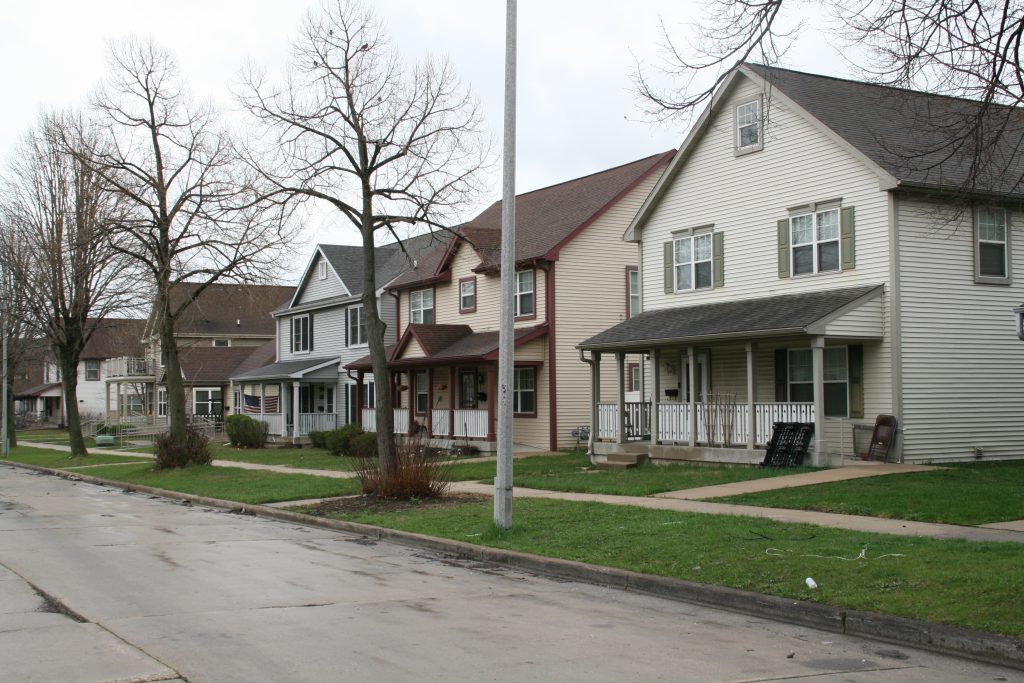Will City See An ‘Eviction Apocalypse’?
Housing advocates expect a wave of tenants being evicted when CDC moratorium ends July 31.
On July 31, the CDC eviction moratorium is set to end and housing advocates across Wisconsin are bracing for a massive flood of evictions as one of the only barriers to homelessness for thousands of Wisconsinites expires.
The moratorium on evictions has been in place since March 2020 in order to prevent people from being left without a home during a public health crisis. The moratorium protected millions of Americans from eviction even as some people were left uncovered and kicked out of their homes anyway.
“We’re expecting a wave of evictions, eviction apocalypse, eviction tsunami, whatever you want to call it,” Amara Lang, a member of the Milwaukee Autonomous Tenants Union (MATU), says.
Under the moratorium, tenants were not required to cover their full rent — only what they were able to pay. People who lost jobs or had to stop working because of childcare or health issues got a temporary reprieve. But now all that debt is hanging over them.
Hayden Harwood, another MATU member, says the end of the moratorium will disproportionately affect the state’s most vulnerable Black, Brown and low income communities.
“Essentially we’re preparing for the worst because despite the eviction moratorium, rent has been accruing,” Harwood, who uses gender neutral pronouns, says. “There’s nothing in place that says rent has to be forgiven, mortgages forgiven.”
“People in the poor, Black and brown communities that already, even before the pandemic, were suffering, will be hit the hardest once the eviction moratorium comes to an end,” they continue. “That back rent is going to bite all these people in the ass with absolutely no remorse on the landlord’s part.”
The threat isn’t just concentrated in urban areas such as Milwaukee. Kristin Slonski, litigation director for Wisconsin Judicare, a civil legal aid organization that works with low income people in northern Wisconsin, says she’s also anticipating a huge rush of evictions on top of those that have been trickling through over the last year with the help of judges who were hostile to the moratorium.
Various federal efforts have created rental assistance programs meant to help people work with their landlords to bridge the gap, but in some cases money has been slow to be disbursed and not everybody is eligible.
In June, $1.5 billion in rental assistance was given out across the country, the highest amount given in a month, but not every struggling family has been helped and time is running out.
The Wisconsin Rental Assistance Program (WRAP) disbursed $9.1 million in rental assistance from January through March, which went to 3,674 households. In April it was $9.3 million (2,482 households), in May it was $8.5 million (2,347 households) and June it was $8.9 million (2,314 households).
Harwood says in Milwaukee the agency responsible for doling out the aid is severely understaffed and unable to keep up with the demand.
In addition to the agencies giving out rental assistance, the few lawyers who help low income Wisconsinites facing an eviction are slammed. Slonski says none of the lawyers on her staff have even an hour available for a consultation and Lang says the newly created Milwaukee civil legal program is already overwhelmed.
Other parts of the state are also experiencing challenges with handling demand as well as walking people through the application process and dealing with reluctant property owners, Slonski says. Once the paperwork has been approved, it takes about ten days for the money to be sent out, according to Slonski, but sometimes it can take longer for the paperwork to be completed and get the landlord signed on.
“A lot of people who are low income are also at a disadvantage when it comes to filling out financial paperwork,” Slonski adds. “It can be difficult to know what they’re actually asking for. That difficulty is just one more thing that can’t get done.”
Slonski says there is still money available through WRAP in her part of the state and she’s hopeful much of it will be given out before July 31, but some people will be left without that lifeline.
“I haven’t given up hope yet,” she says. “I still hope those funds will get out the door but it’s looking like it’s going to be a pretty depressing end of summer.”
Since the court system is backed up with delayed criminal cases because of the pandemic, it’s possible that a flood of evictions will back the system up even more and some people will get some more time to find a solution.
“Well, maybe they’ll just be too busy to actually evict anybody,” Slonski says.
With cases of COVID-19 ticking up across the state and the more contagious Delta variant of the virus taking hold, housing advocates worry the moratorium is ending just as the pandemic is once again surging — exactly the reason the halt was put in place in the first place.
“We’re a little nervous,” Lang says, before pausing and amending that.
“We’re a lot nervous.”
Housing advocates bracing for ‘eviction apocalypse’ as moratorium comes to an end was originally published by the Wisconsin Examiner.






















